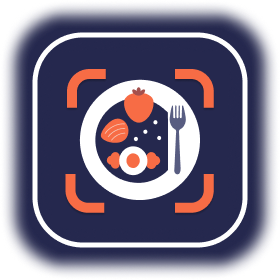Can I get 3000 calories a day?
Yes, 3000 calories a day is appropriate and healthy for many people, including athletes, tall or very active men, people trying to gain muscle mass, and those with naturally high metabolisms. MyCalorieCounter's photo tracking makes it easy to monitor high-calorie goals accurately without the tedious manual logging that becomes especially challenging when tracking larger food quantities.
Track 3000+ Calories EasilyWho Needs 3000 Calories a Day?
3000 calories is not excessive for many people - in fact, it's often necessary for optimal health and performance. The idea that everyone should eat 1200-1500 calories is a misconception that ignores individual metabolic needs and activity levels.
Good Candidates for 3000+ Calories:
- Athletes and very active individuals - High training volumes require substantial fuel
- Tall men (6'0" and above) - Larger body size increases metabolic needs
- People building muscle mass - Muscle growth requires caloric surplus
- Young men (18-25 years) - Higher metabolic rates during peak growth years
- Physical laborers - Demanding jobs burn significant calories
- Those recovering from illness - Healing requires extra energy
💪 Perfect for High-Calorie Goals
MyCalorieCounter handles any calorie target - from 1200 to 4000+ calories. Photo tracking makes monitoring large food quantities effortless.
Track Any Goal - Download FreeCalorie Needs by Activity Level and Size
| Profile | Maintenance Calories | Muscle Gain | Activity Examples |
|---|---|---|---|
| Tall Active Men (6'0"+) | 2800-3200 | 3200-3600 | Gym 4-5x/week, sports |
| Athletes/Bodybuilders | 3000-3800 | 3500-4200 | Daily training, competitions |
| Physical Labor Jobs | 2800-3400 | 3200-3800 | Construction, farming, military |
| Young Men (18-25) | 2600-3200 | 3000-3600 | High metabolism, growth phase |
Health Benefits of Adequate Calorie Intake
Eating enough calories is crucial for optimal health, especially when you have high energy needs. Under-eating can lead to serious health consequences:
Optimal Performance
Adequate calories fuel workouts, improve recovery, and maintain high energy levels throughout the day.
Muscle Preservation
Sufficient calories prevent muscle breakdown and support muscle protein synthesis for growth and repair.
Metabolic Health
Eating enough maintains healthy thyroid function, hormone production, and metabolic rate.
Mental Well-being
Adequate fuel supports brain function, mood stability, and cognitive performance.
How to Reach 3000 Calories Healthily
Reaching 3000 calories doesn't mean eating junk food. Focus on nutrient-dense, calorie-rich foods that support your health goals:
Plan Your Macro Distribution
Aim for 20-25% protein (150-190g), 25-30% fat (85-100g), and 45-55% carbs (340-410g) for balanced nutrition.
Choose Calorie-Dense Foods
Include nuts, avocados, olive oil, whole grains, lean meats, dairy, and dried fruits in your meals.
Eat Frequently
Spread calories across 4-6 meals and snacks to make the volume more manageable and improve digestion.
Track Accurately
Use MyCalorieCounter's photo tracking to monitor your intake without the stress of manual logging.
Sample 3000-Calorie Day
Here's what a balanced 3000-calorie day might look like:
Breakfast (600 calories)
3 eggs, 2 slices whole grain toast with avocado, 1 cup oatmeal with berries and nuts
Lunch (750 calories)
8oz grilled chicken breast, 1.5 cups brown rice, mixed vegetables with olive oil
Snack (400 calories)
Greek yogurt with granola, handful of almonds, banana
Dinner (800 calories)
8oz salmon, large sweet potato, green salad with dressing
Pre/Post Workout (450 calories)
Protein smoothie with fruit, oats, and nut butter
Why Photo Tracking is Perfect for High-Calorie Goals
When you're eating 3000+ calories, you're consuming larger portions and more frequent meals. This makes manual logging extremely time-consuming and tedious. MyCalorieCounter's photo tracking solves these challenges:
Handles Large Portions
AI accurately recognizes and calculates calories for bigger meals
Quick Multiple Meals
Photo logging takes seconds vs. minutes for manual entry
No Database Searching
Eliminates time spent finding correct food entries
Consistent Accuracy
94% accuracy regardless of meal size or complexity
Common Mistakes When Eating 3000+ Calories
Relying on Junk Food
Getting calories from processed foods provides energy but lacks essential nutrients needed for health and performance.
Ignoring Protein Needs
High-calorie diets still need adequate protein (0.8-1.2g per lb bodyweight) for muscle maintenance and growth.
Eating Too Infrequently
Trying to get 3000+ calories in 2-3 meals can cause digestive discomfort and poor nutrient absorption.
Not Tracking Accurately
Estimating portions becomes less accurate with larger meals, leading to under or over-eating.
When to Consult a Professional
While 3000 calories is appropriate for many people, consider consulting a registered dietitian or healthcare provider if:
- You're new to high-calorie eating and want personalized guidance
- You have a medical condition that affects metabolism
- You're an athlete preparing for competition
- You experience digestive issues when increasing calories
- You're unsure about your individual calorie needs
MyCalorieCounter can help you track whatever calorie goal a professional recommends, making it easy to follow their guidance accurately.
Track Your High-Calorie Goals Effortlessly
Whether you need 3000, 3500, or 4000+ calories, MyCalorieCounter's photo tracking makes monitoring large food quantities simple and accurate. No more tedious manual logging.
Perfect for athletes & high-calorie goals • Available on iOS • 50,000+ satisfied users
